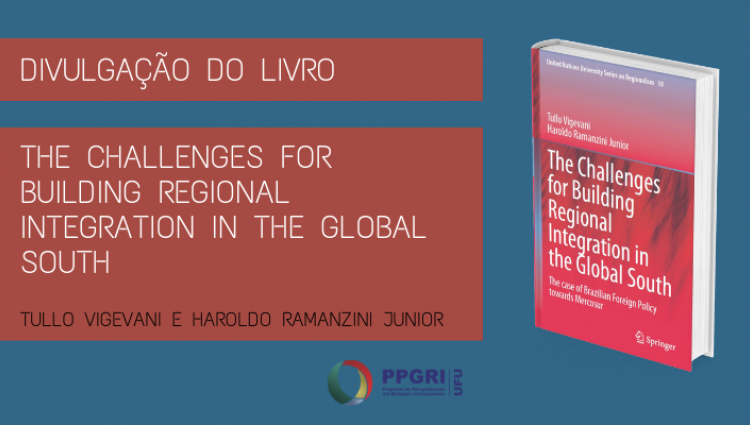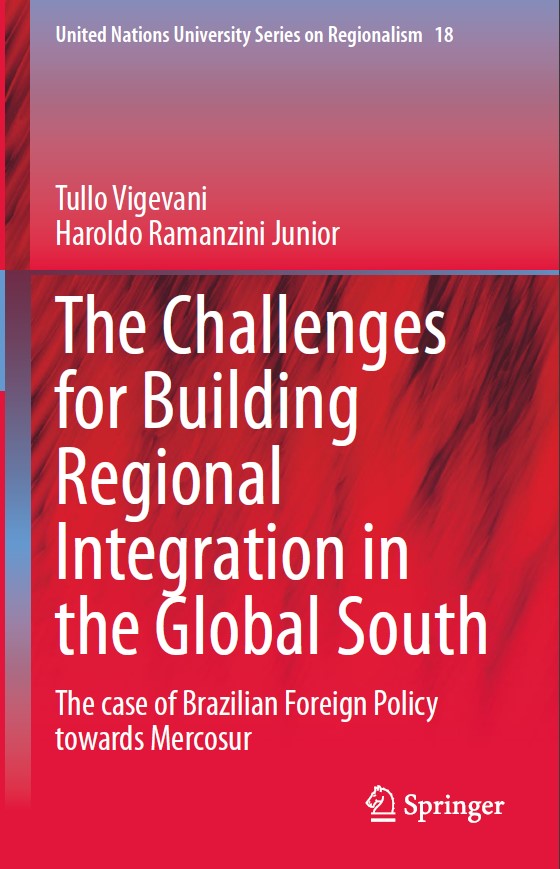The Challenges for Building Regional Integration in the Global South
Publicado: 24/08/2022 - 09:55
Última modificação: 29/08/2022 - 09:07

Os professores Tullo Vigevani (PPGRI-STD) e Haroldo Ramanzini Junior (PPGRI-UFU) acabam de publicar o livro intitulado “The Challenges for Building Regional Integration in the Global South: The case of Brazilian Foreign Policy towards Mercosur”, pela editora Springer.
O livro analisa a integração regional na América do Sul com foco no Mercosul e na política externa brasileira a partir dos anos 1990. Os autores abordam a complexa inter-relação entre os fatores internos e externos que moldaram a política externa brasileira em relação à região. Consideram a trajetória histórica do Mercosul ao longo de um período de 30 anos, identificando os resultados alcançados, bem como as causas das dificuldades. Além de tratar um tema de grande atualidade, o livro é uma importante contribuição para os interessados na política externa brasileira e de países da América do Sul. Igualmente, os estudiosos do tema do regionalismo e do regionalismo no Sul Global encontrarão nesta obra relevantes elementos teóricos e empíricos, bem como contribuições pertinentes para compreender o papel dos países emergentes na política internacional.
About the book
This book analyzes regional integration in South America with a focus on the Mercosur and Brazilian foreign policy from the 1990s. It reviews the history of the Mercosur and identifies the results achieved by the bloc, as well as the causes of difficulties and the reasons for stalemates over nearly 30 years of its existence. The authors identify the complex interrelation between domestic and foreign factors that have shaped Brazilian foreign policy. From 1991 onwards, relations between Latin American countries have changed while the Mercosur developed from a free trade area to a customs union. While intrabloc trade grew, there were huge difficulties in the form of regional institutional affirmation and cooperation. This history is of the utmost importance to understanding regionalism and politics in Latin America. The book therefore has two interrelated analytical dimensions: namely, focus on ideas and identity; and behavior, actions, and economic and political interests. This very topical book is of interest for researchers and students of Brazilian foreign policy and those of Latin American and/or Mercosur countries. Particularly, readers interested in regionalism will find important theoretical and empirical elements in this book, as well as discussions necessary for comprehending the role of big, emerging countries, and the potential and limits to their international role.
Saiba mais em https://link.springer.com/book/10.1007/978-3-030-93348-7
